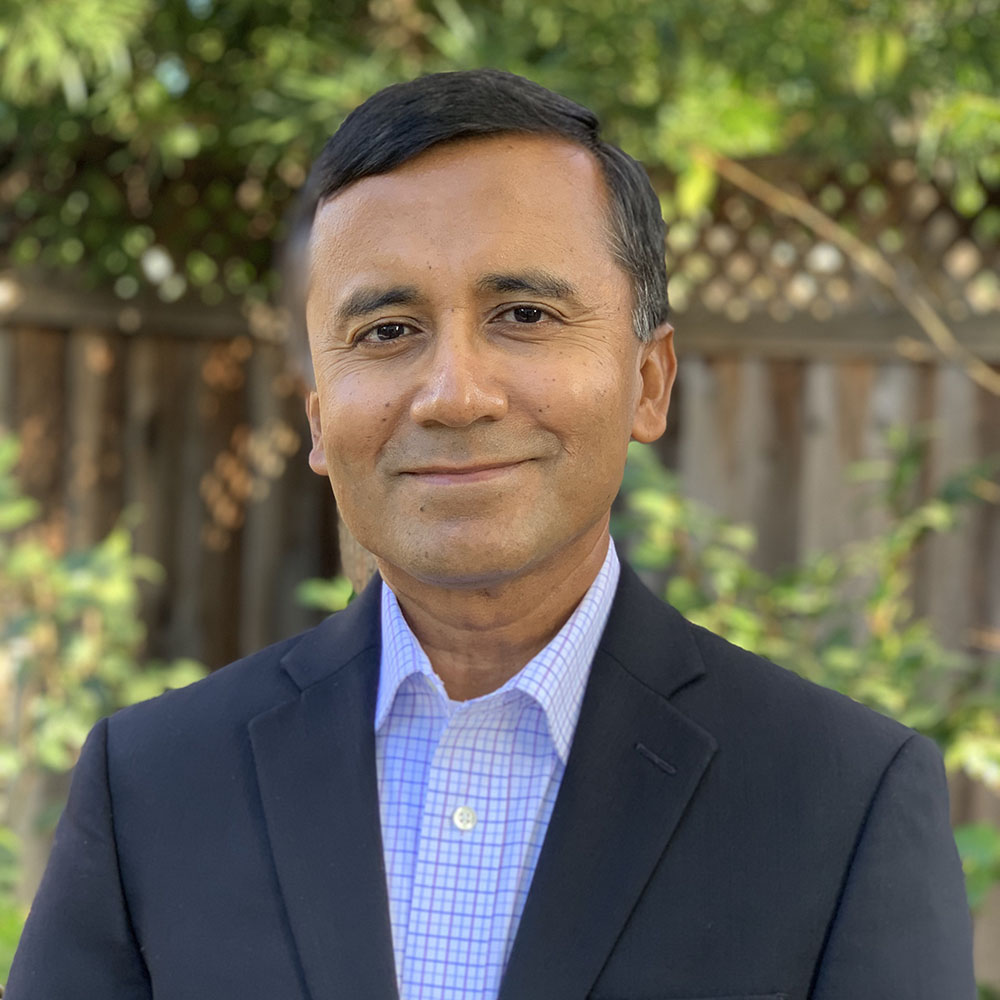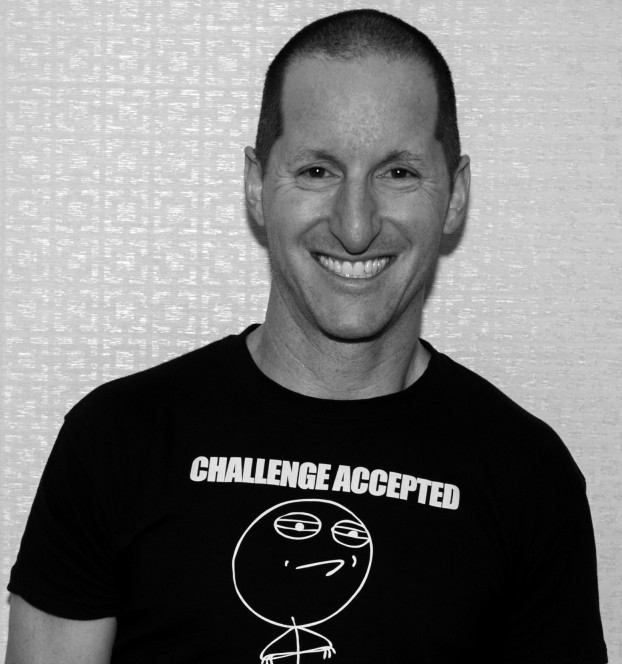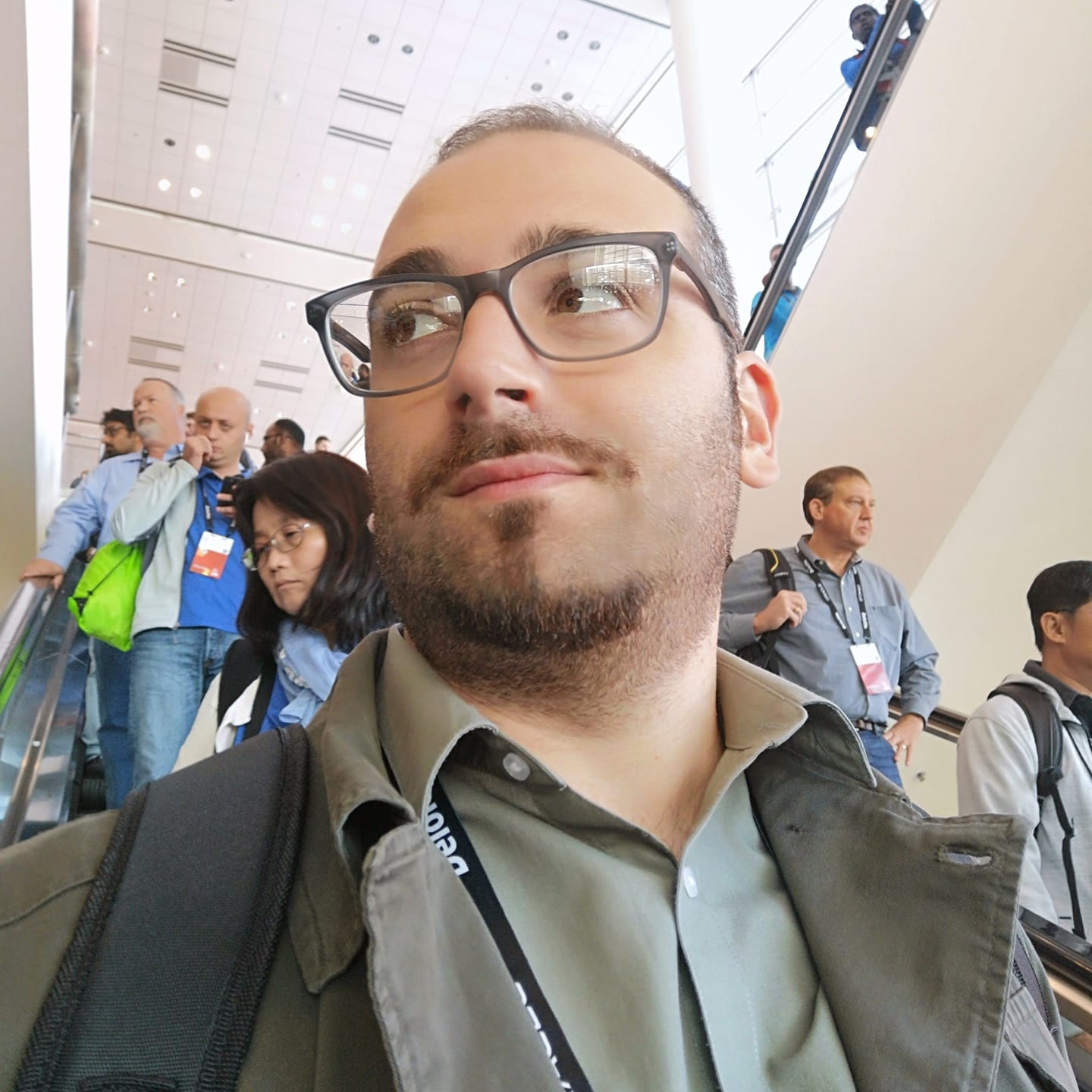Speakers & Sessions
Database | 45min |
Regular Expressions: Say What?
It has been possible since Oracle database release 10, Regular Expression support with its own set of functions. But getting started with Regular Expressions is not easy. Most database developers would avoid them if at all possible.
With current release of the Oracle database, Regular Expression syntax becomes more important. You can use them to redact data with DBMS_REDACT and to search for patterns using the Match_Recognize clause.
This session covers the basic syntax and gives you an easy introduction with Regular Expressions with plenty of code samples.
Database | 45min |
SQL Model Clause: A Gentle Introduction
The Model Clause adds spreadsheet-like functionality to the SQL language. Very powerful stuff, yet the syntax can be quite daunting. With the Model Clause, you define a multidimensional array from query results and then apply formulas to this array to calculate new values.
This presentation will give you a gentle introduction in the complex syntax of the Model Clause and will show you some real life examples where the Model Clause was invaluable.

Alex Nuijten
allAPEX
Database | 45min |
Oracle Exadata Cloud at Customer Technical Deep Dive
Oracle Exadata Cloud at Customer continues to attract new customers across the globe and offers a compelling platform for customers that want cloud benefits but can’t move to the public cloud. Oracle Exadata Cloud at Customer uniquely combines the best database technology and Exadata, the most powerful database platform, with the operational simplicity and pay-as-you-grow economics of the cloud in a customer data center. Whether you are an experienced Exadata customer or never used Exadata before, you will benefit from the breadth and depth of this session. Topics covered include deployment, operations, networking, security, backup and recovery, maintenance, and use cases.

Ashish Ray
Vice President of Product Management, Oracle
Ashish Ray is Vice President of Product Management within Oracle’s core database development organization. His product responsibilities include Autonomous Database, Exadata, Database Cloud Services, Zero Data Loss Recovery Appliance, and Oracle Database’s High Availability solutions (Maximum Availability Architecture). In this role, he manages various product development and customer-focused initiatives around these highly critical products and cloud services. Mr. Ray has 25+ years of combined experience in software architecture design, software development and product management, focusing on the reliability, availability and scalability issues of enterprise computing. Mr. Ray has a BS and MS in Computer Science, and also an MBA from Wharton Business School, University of Pennsylvania.
Database | 45min |
How to Find Patterns in Your Data with SQL
SQL is a powerful language for accessing data. Using analytic functions, you can gain lots of insights from your data. But there are many problems which are hard or outright impossible to solve using these.
Introduced in 12c, the row pattern matching clause, match_recognize, fills this gap. With this it’s easy to write efficient SQL to answer many previously tricky questions.
This session introduces the match_recognize clause. It will use worked examples to show how it works and show how it’s easier to write and understand than traditional SQL solutions.
This talk is for developers and data analysts that need to do advanced data analysis.

Chris Saxon
Developer Advocate, Oracle
To help you with this he blogs at All Things SQL. He also creates videos combining SQL and magic on YouTube at The Magic of SQL.
If you have questions about working with Oracle Database technology, please reach out to him. You can do this via Twitter or on Ask TOM.
Database | 45min |
SQL Syntax: Oracle vs. ANSI. Fight!
Debates over whether it is better to use Oracle syntax or ANSI in your SQL rage on the internet. It is time to settle these once and for all!
In the blue corner, Alex will champion ANSI style. And in the red corner, Chris will defend Oracle syntax.
In a best-of-three battle, covering joins, functions and recursive queries they will each highlight the benefits of their chosen style.
This session is for developers looking to expand their SQL skills and understand the pros and cons of the syntax methods.

Chris Saxon
Developer Advocate, Oracle
To help you with this he blogs at All Things SQL. He also creates videos combining SQL and magic on YouTube at The Magic of SQL.
If you have questions about working with Oracle Database technology, please reach out to him. You can do this via Twitter or on Ask TOM.

Alex Nuijten
allAPEX
Database | 45min |
Flashback – not JUST for DBAs
Most people think of the Flashback features in Oracle as the “In Case of Emergency” switch, to only be used when something catastrophic has occurred on your database. And yes, it is true that Flashback will definitely help you in those 3 seconds after you press the Commit button and you realise that you probably needed to have a WHERE clause on that “delete all rows from the SALES table” SQL statement. Or for when you run “drop table” on the Production database, when you were just so sure that you were logged onto the Test system. But Flashback is not only for those “Oh No!” moments. It offers much much more in modern application development. It enables benefits for developers ranging from data consistency to continuous integration and data auditing. Tucked away in Enterprise Edition are six independent and powerful technologies that might just save your career but they will also open up a myriad of other benefits of well.

Connor McDonald
Database Advocate, Oracle
Database | 45min |
Avoid “Horror Queries”: Keep Your SQL Simple and Fast
SQL is a powerful and efficient query language when used correctly. But inefficient and inappropriate SQL statements can cause massive performance problems. Instead of solving such issues with additional indexes, optimizer hints, SQL profiles or SQL plan baselines, a much better and more sustainable solution is often to rewrite the SQL statements and to reduce the complexity of the queries.
During performance tuning tasks for my customers, I’m often confronted with complex SQL statements. Many of these statements were developed years ago and changed several times by people that either had not enough SQL skills or had not the time to understand the original query in detail. This can lead to queries that are not only very slow, but also hard to understand – for the developers as well as for the query optimizer. By transforming these SQL statements into simpler queries, the optimizer can calculate better estimations and generate faster execution plans.
In this presentation, some real-life examples of terrible “horror queries” will be shown and rewritten into simpler, more elegant and faster SQL statements. The goal of the presentation is to show how to improve the performance of a query by factors with appropriate SQL statements and powerful Oracle SQL features.
Database | 45min |
Incremental Statistics: From a Nightmare to a Fast Solution
Have you ever tried to gather incremental statistics on a database with more than 300000 partitions? With Oracle 12.1, this was a nightmare. Fortunately, the newest versions of Oracle database provide a new method for synopsis calculation and more flexibility in the configuration of gathering incremental statistics.
Incremental statistics reduce the time to gather global statistics for a partitioned table. Really? In some situations, it may happen that incremental statistics slow down statistics calculation dramatically. In a customer project, we had to turn off incremental statistics because the gathering job was running even longer than calculating the global statistics from scratch. The reason was the high number of partitions in the database – more than 300000 partitions for almost 1000 partitioned tables. After the customer migrated his databases to Oracle 18c, incremental statistics gathering runs much faster now.
Since Oracle 12c Release 2, the database provides a new way to calculate the synopsis values. Instead of storing a high amount of detail data in table WRI$_OPTSTAT_SYNOPSIS$ to retrieve the number of distinct values for each column, a HyperLogLog algorithm is used to calculate an approximate number of distinct values. In this session, I will give an introduction in this new method of incremental statistics calculation, and show in some live demos how it can be configured and used in the current Oracle releases.
The attendees of the presentation should be familiar with the basic concepts of statistics gathering with DBMS_STATS and with partitioning. A short overview of incremental statistics will be given at the beginning of the presentation.

Dani Schnider
Senior Principal Consultant, Trivadis
Dani is co-author of the books “Data Warehousing mit Oracle – Business Intelligence in der Praxis” (Hanser Verlag, 2011) and “Data Warehouse Blueprints” (Hanser Verlag, 2016). He is Oracle ACE and writes about Data Warehousing with Oracle on his blog https://danischnider.wordpress.com, publishes articles and presents his practical knowledge on conferences.
Database | 45min |
Alternative al public cloud
Come poter sfruttare i vantaggi del cloud computing anche negli scenari in cui non è possibile accedere al cloud pubblico.
Scopriremo come i sistemi ingegnerizzati oracle possono essere utilizzati per il deploy di un cloud privato o ibrido in modalità at customer sia su Exadata per workload esclusivamente database e PCA per workload general purpose.

Daniele Bocciolini
DB Management Solution, Filippetti S.p.A
Fields of expertise: Consolidation on virtual environment, linux, middleware and Database administration, permissioned blockchain implementation.
Database | 45min |
How to identify performance problems of a sql statement
How to identify performance problems of a sql statement:? in this session we will discuss different techniques (ash, awr etc) on how to identify performance problems related to sql statement.

Donatello Settembrino
Oracle performance consultant, ICTeam
He is specialized in Oracle performance troubleshooting, Oracle instance assessment, expert in database design for good performance, development in PL/SQL and knows very well SQL
Database, Analytics & Big Data | 10min |
Oracle ACE Program Presentation

Jennifer Nicholson
Director Developer Advocacy Programs, Oracle
To learn more, go to following pages:
Oracle ACE Program (how to Nominate an ACE)
Groundbreaker Ambassador Program (how to Nominate an Ambassador)
Java Champions program
Database | 45min |
Explain the Explain Plan – Interpreting Execution Plans for SQL Statements
The execution plan for a SQL statement can often seem complicated and hard to understand. Determining if the execution plan you are looking at is the best plan you could get or attempting to improve a poorly performing execution plan can be a daunting task even for the most experienced DBA or developer. This session examines the different aspects of an execution plan, from selectivity to parallel execution and explains what information you should be gleaming from the plan and how it affects the execution. It offers insight into what caused the Optimizer to make the decision it did as well as a set of corrective measures that can be used to improve each aspect of the plan.
Database | 45min |
Harnessing The Power Of Optimizer Hints
The goal of the Oracle Optimizer is to examine all possible execution plans for a SQL statement and to pick the one with the lowest cost, which should be the most efficient. From time to time, it may become necessary to influence the plan the Optimizer chooses. The most powerful way to alter the plan chosen is via Optimizer hints. But knowing when and how to use Optimizer hints correctly is somewhat of a dark art. This session explains in detail how Optimizer hints are interpreted, when they should be used, and why they sometimes appear to be ignored.

Maria Colgan
Master Product Manager, Oracle
Prior to this role; she was the product manager for Oracle Database In-Memory and the Oracle Database query optimizer. Maria is the primary author of the SQLMaria blog https://sqlmaria.com and a contributing author to the Oracle Optimizer blog https://blogs.oracle.com/optimizer.
Database | 45min |
AutoUpgrade – Unattended Hands-Free Database Upgrades to Oracle Database 19c
Database upgrades are no fun for most people. And some customers have hundreds or thousands of databases to upgrade. The new AutoUpgrade tool will automate your database upgrades. This is exactly what most people waited for. A small, lean and simple tool which upgrades your databases – not only to Oracle 19c but also to 18c or 12.2.0.1. Upgrades become an easy task. You can embed it into your scripts – and schedule it overnight. The next morning, the database is upgraded. One config file – that’s it. This talk includes an interactive live demo – and many tips and tricks.

Mike Dietrich
Master Product Manager - Database Upgrade and Migrations, Oracle
Find out more about Mike on the Upgrade Blog: https://MikeDietrichDE.com
Database | 45min |
Database Stats. Doing It Right, When It’s Harder
Following on from “Doing It Right, The Easy Way”. Oracle Statistics are critical to the optimizer and your system performance, whether on-premises, in the Cloud or Autonomous.
What do you need to consider when tables get big, you have quickly changing data, and other more complex situations.
What can you do with Oracle to make your life easier, and where can it get in the way?
Database | 45min |
Histograms are Evil like Chocolate is Evil
Statistics are critical to your execution plans and SQL Performance.
But are you using Histograms? Yes, of course you are – even if you didn’t know it.
Did you want to use them?
Are they helping you get to the optimal optimization plan, or making life harder for the optimizer?
I will explain the benefits and threats associated with histograms, how the new 12.2 histogram types make them more acceptable,
where they are still a threat and how I usually handle them for greatest benefit in large systems.

Neil Chandler
Database Architect, Chandler Systems
Neil is an independent consultant who specialises in Performance Tuning, RAC, DataGuard, and Goldengate.
Neil also works with SQL Server, MariaDB and other databases.
Neil is an Oracle ACE Director, and a board member of the UKOUG
He likes to drink strong smooth Italian coffee, good beer and better whisky, depending upon the time of day.
Database | 45min |
A Cloud Journey – Move to the Oracle Cloud
Oracle offers a wide array of options to bring your database to the Cloud.
In this presentation, we will cover the different solutions that will allow for an easier and seamless migration to the Oracle Cloud in all its different use cases and flavors. We will discuss in depth the intricacies, requirements and how-to’s of our work and will walk you through the process through a series of demonstrations. A vast range of Oracle Cloud Migration technologies will be shared so that all your use cases will be covered. Wether it is offline or online migrations, we will cover it all. We’ll discuss the different tools, such as scripts, GoldenGate, RMAN, Data Pump, MAA Methods, Remote Cloning, Plug / Unplug, the Oracle SQL Developer Migration tool and a new automated way to handle all your database cloud migration needs.
Overall, you will have a better understanding on how to migrate your workloads into the Cloud and leverage all that Oracle has to offer.

Ricardo Gonzalez
Senior Principal Product Manager, Oracle
He holds a B.Sc in Computer Science and a Master in Business Administration, focused on Entrepreneurship and Innovation.
He currently works on the IT sector as a Product Manager for the Oracle Database Cloud Migration, ACFS & FPP products & Technical Evangelist for the Real Application Clusters team. He works with prospect and current customers, understanding better their needs and providing input to the development team towards the creation of new features and further development of the product. He is also a training leader, expositor and participates in customer relationships at Oracle events throughout the World.
At Oracle he also contributes by helping with promotion, recruitment events and generating awareness among the local technology community.
Analytics & Big Data| 45min |
Game of Fraud Detection With SQL and Machine Learning
Someone’s stealing money from the Iron Bank! After a series of fraudulent transactions, a huge sum of cash is missing.
But who’s the culprit?
This session will show you how to use SQL to implement simple rules-based analysis. It’ll then show you how to use machine learning to spot advanced fraudulent activity. This will cover the pros and cons of both approaches. Finally, demonstrating how a hybrid solution can give you the best of both worlds. The demonstration will be implemented in Autonomous Data Warehouse and Oracle Analytics Cloud for the Iron Bank.
This session is for developers, data scientists, and analysts searching for complex patterns in data.

Abi Giles-Haigh
Chief Data Science Officer, Vertice

Chris Saxon
Developer Advocate, Oracle
To help you with this he blogs at All Things SQL. He also creates videos combining SQL and magic on YouTube at The Magic of SQL.
If you have questions about working with Oracle Database technology, please reach out to him. You can do this via Twitter or on Ask TOM.
Analytics & Big Data| 45min |
Putting machine learning into production : the good the bad and the ugly
Data Science and Machine Learning are key tools that organisations around the world are using to find hidden patterns in their data. These patterns can give key business insights and financial benefits. When it comes to maximizing the business value there are a number of key technical and business challenges that are limiting this potential success. One key success factor is the ability to take data science and machine learning out of the lab environment and into production use. Developers find it difficult to incorporate the outputs and models from data science and machine learning into applications and building complex IT solutions, particularly when trying to manage concept drift. At the same time the business is facing difficulties with ROI and how these projects operate differently to typical IT projects. This presenting will explore these challenges for IT and Business and will give pointers for how you can maximize the business value of data science and machine learning.
Analytics & Big Data| 10min |
REST enabling in-Database Machine Learning models
Everywhere you look machine learning is being used to provide valuable insights of your customer data, as well as data from other parts of your organisation. The Oracle Data Warehouse Cloud Service and Oracle 18c Database allows you to build real-time predictive machine learning models. These can be build using the Oracle Advanced Analytics option, using the R language or using the new Oracle Machine Learning product. But the real value comes when these machine learning models can be shared throughout the organisation. This presentation will demonstrate how these machine learning models can be build and then shared using RESTful services allowing real-time scoring of data from any of languages used for your production applications.

Brendan Tierney
Oralytics
Analytics & Big Data| 45min |
Buzzword Bingo or Reality? OAC ADW ODA Combined
AI technologies have enabled us to interact with systems and devices in revolutionary ways. Oracle has evolved chatbots into digital assistants (Oracle Digital Assistant) to leverage AI to improve the user experience. Come to this session to learn the basics of these digital assistants, such as intents, utterances, and entities. The presentation looks at the design of a conversation flow, connects Digital Assistant to Oracle Autonomous Data Warehouse and Oracle Analytics Cloud via back-end API, enabling Digital Assistant to execute and embed Analytics Cloud reports or execute and return SQL statements from Autonomous Data Warehouse and Digital Assistant to display dashboards from Analytics Cloud.

Christian Berg
Managing Director, Dimensionality
A prolific speaker and heavily engaged community leader, Christian is an Oracle ACE Director and has been designated Most Valued Contributor for Oracle Support Communities. He also teaches for Oracle University.
Analytics & Big Data| 45min |
Challenges and Pitfalls of Data Visualization
“A picture says more than a thousand words”. This sounds like a true statement. While it’s true that it is easier to tell a story with visuals than with words, it makes a huge difference which visual you are using for which story. What is the real story behind a visual. Using the wrong visual to tell a certain story can reduce the benefit of a visual to zero. In this presentation we will go through the Challenges & Pitfalls of Data Visualization.

Daan Bakboord
BU Manager Data & Analytics, Pong
I have a strong focus on Oracle Analytics (#OAC, #OBIEE and Data Visualization) and Cloud Analytics (Fivetran, Snowflake and Looker). Next to that, I have a strong interest in (the Architecture and organization of) Modern (Cloud) Data Architectures in general (TOGAF, ArchiMate, and CBIP) and Oracle Analytics Architectures in specific.
Analytics & Big Data| 45min |
Is it Corked? Wine Machine Learning Predictions with OAC
What do you know about Machine Learning and Artificial Intelligence? How deep do you need to study before you can actually start implementing it?
Oracle Analytics Cloud democratizes the concept of Data Science: data cleansing, enrichment, model training and evaluation are now tasks that can be performed visually in the tool lowering the barrier of Machine Learning.
This presentation will show a live Machine Learning example with OAC, starting from a Wine Rating Dataset, we will understand the features, enrich them, build a predictive model to score the wine rating and validate it against unseen data, all with a simple GUI and without having to write a single line of code!
Are you ready to see Machine Learning in action? And understand all the steps involved in building and validating a model? Then check out this session!

Francesco Tisiot
BI Tech Lead, Rittman Mead
Analytics & Big Data| 45min |
When Machine Learning meets Graph Databases
Machine Learning is everywhere these days (just after AI), it started as a python and R thing, it joined the Oracle Database after and it’s now available for Oracle Graph Database as well. Let’s go through some examples of how graphs require to slightly adapt data preparation to run Machine Learning algorithms.
Analytics & Big Data| 10min |
Relational DB vs Graph DB: And The Winner Is?
No need to introduce Relational Databases anymore, and even less the power of SQL. But better to not ignore Graph Databases: they are powerful and have some obvious benefits compared to a relational database. Let’s compare the two and the power of their query languages with some practical examples and see which wins!

Gianni Ceresa
Managing Director, DATAlysis GmbH
Analytics & Big Data| 45min |
Making Sense of Location: Tracking, Visualizing & Analyzing Objects in 2D, 3D & 4D
Location information is a common element in many Big Data scenarios, in Smart Cities or in the context of the Internet of Things. This kind of positional data can explicitly be expressed as coordinates if it comes from a GPS sensor or it can be implicitly included in a postal code, a city or a landmark name, occurring in two or three dimensions, potentially even using time as the 4th dimension. For many years, Oracle has been offering technologies to manage, to analyze and to visualize this kind of data. In this session, we will review the basics of database development for geospatial data, both on-premise as well as in the cloud. We will look at tracking and tracing of moving objects, spatial data visualization, as well as more advanced analytics based on road networks. Two customer projects in Germany and Belgium are included to round off the session.

Hans Viehmann
Product Manager, Oracle
He holds a degree in Physics from Hamburg University and started his career in Research before joining ORACLE over twenty-five years ago. After various positions in Presales and Business Development, he joined the Product Management Team in 2011. He is responsible for the outbound product managers on the Oracle Spatial and Graph team. With his team, he is looking after strategic projects and partnerships, the marketing activities, as well as the internal awareness around the Spatial and Graph technologies worldwide. He is working closely with various Oracle User Groups and helped establish Spatial and Graph Special Interest Groups in several countries. He is a regular speaker at conferences and user group events and serves on the advisory board of InGeoForum, Germany.
Analytics & Big Data| 10min |
HELP! How can I resolve my Oracle Analytics issues?
There is a vast amount of Oracle Analytics information out there in the wilderness but how do you get to it? How do you access it quickly? How can you keep up to date with this information? How can this information come to you? This 10 minute talk should show you how to get to the information that can assist you in resolving any Oracle Analytics issues that you may encounter.
This is targeted at the Oracle Analytics space but the principles apply across the board.

Joel Acha
Oracle Analytics Consultant, Elffar Analytics
Analytics & Big Data| 45min |
Augmented Self-Service Data Preparation in Oracle Analytics Cloud
Oracle Analytics Cloud (OAC) provides a powerful tool to get insight from your data, wherever it is. In this session you will learn all about the augmented self-service data preparation capabilities of OAC. It’s easy to get your data into OAC, from enterprise data sources all the way to the humble but mighty CSV file. Once your data is in OAC, take advantage of the suggested enrichments from augmenting geospatial data, detecting potentially sensitive data through to generating useful date based values. What if your data is still on premises? No problem, you can keep your data on premises and visualize it in the cloud using the easy to deploy data gateway feature.

Mike Durran
Product Manager, Oracle
